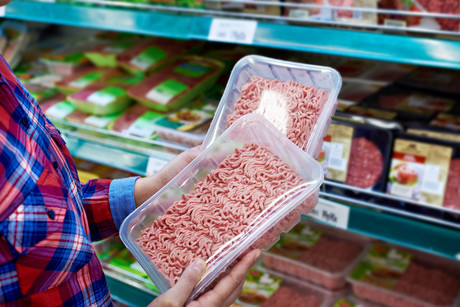Tackling food fraud with blockchain technology

With food safety concerns rising in recent years, there is more emphasis than ever on the importance of provenance and transparency in the food industry.
As part of its $200 million Food Agility Cooperative Research Centre, Queensland University of Technology (QUT) has launched a new research project called BeefLedger that aims to fight food fraud. It is designed to track beef from the paddock to the plate in an attempt to reassure international consumers about the origins of their Australian meat.
Digital cryptocurrency BeefLedger Token (BLT) will be used to allow people to contribute to and participate in the project. Marcus Foth, Professor of Urban Informatics at the QUT Design Lab, said BLT is the first time blockchain technology has been applied to the entire beef supply chain and praises its future prospects.
“It has the potential to revolutionise the industry by limiting price fluctuations, supporting food provenance and preventing food fraud, which is a growing problem in international export markets,” he said.
Users will be provided with access to credentialed provenance data, sale history, consumer feedback insights, disease prevention, streamlining payments and heightened food security.
“So whether you are a farmer, a supermarket, a butcher, a restaurateur, a consumer or another interested party, you will be able to access the entire history of the meat electronically by scanning a barcode or QR code,” Foth explained.
With access to this data, the technology aims to drive value growth for the supply chain as a whole and deliver additional income to producers in recognition of product provenance excellence.
“Our aim is to empower producers to serve the growing middle-class markets of Asia, in particular China, and meet the market’s increasing expectations around food provenance and safety,” said Warwick Powell, CEO of BeefLedger Limited.
Foth highlighted recent food scandals involving meat being passed off as Australian in countries such as China and Japan. Powell continued by suggesting that since beef is a particularly high-risk industry, brand reliability is even more important. The project will help Australia maintain its strong reputation of safe, clean and green suppliers of beef and prevent incidents of food fraud.
“Our research in China demonstrates consumers will pay premiums for high levels of security and the value that food provenance can add to the consumer experience.
“Chinese consumers also increasingly shop with their smartphone, where scanning QR codes for product information and payments is now commonplace. The paddock-to-plate nature of BeefLedger meets this market expectation so that Australian beef remains at the forefront of Chinese consumer experiences,” said Powell.
Kardex opens office in Sydney
Swiss Intralogistics solutions provider Kardex has opened its Australian office in Sydney, with...
Starting the conversation about Australia's food security future
AFGC has highlighted urgent supply chain and manufacturing pressures in its submission to the...
Fine Food recap: success for Australian food logistics business
The Fine Food exhibition in Sydney was a resounding success for CoolPac's Olivo insulated...










